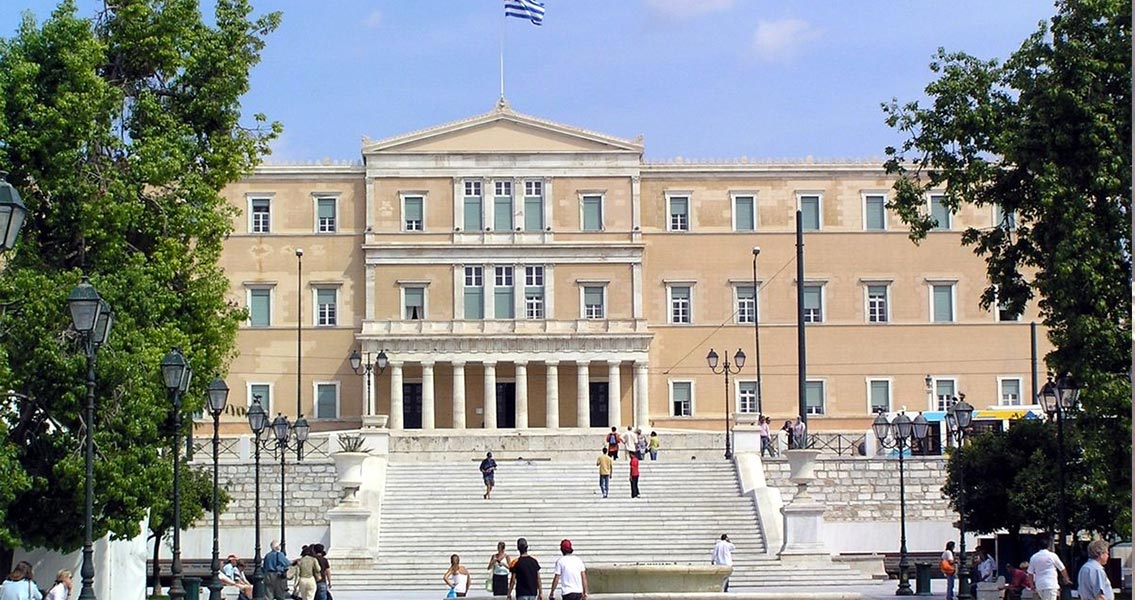<![CDATA[On the 3rd December 1944 a brutal civil war erupted in the Greek capital Athens. Coming as the Second World War continued to rage elsewhere in Europe and Asia, it is an event that is often overlooked in histories of the period. The conflict on the streets of Athens however, played a key role in a hugely significant and often tragic period of Greek history. It also reveals a great deal about the changing nature of world politics, even before the World War had ended. Germany had occupied Athens from April 1941, compensating for Italy's failed attempt to secure the Mediterranean region. The German occupation in Greece was a particularly harsh one, including mass public executions as a means to intimidate the population. Professor Mark Mazower's book 'Inside Hitler's Greece' describes women being stripped and violated, and bodies left hanging from trees in the streets, with security divisions standing guard to prevent their removal. Inevitably Greeks resisted the terror of the German occupation. Sporadic acts of defiance soon turned into organised movements. Britain sought to destabilise the German forces by any means possible, and formed an alliance with EAM - a coalition of countryside and left-wing parties. The military wing of the EAM, ELAS, carried out a successful campaign to push the Nazis out of Greece. Daily counter attacks were launched against the occupying forces, particularly in rural areas. By autumn 1944, Greece was a devastated country, with 7% of the population dead as a result of occupation and famine. ELAS however, had successfully liberated a significant chunk of the Greek countryside, and established a provisional government outside Athens, one that existed independently of the exiled Greek king and his government. Just before Germany was forced to withdraw in October 1944, EAM agreed to allow British troops to have a presence in the county. On 18th October British forces arrived in Greece, with motives that history has proven were far from straightforward. It seems British prime minister Winston Churchill wished to reinstate the Greek King and the military dictatorship that had ruled the country before the war. Churchill had already agreed a map of the post war world with Stalin, one which divided Europe into spheres of influence. Greece fell into the British sphere, and the Communists that had played such an important role in liberating the country suddenly became a threat. It's important to note that EAM hadn't been the only resistance movement in Greece. Royalist forces and liberal groups had also taken on important roles in the fighting. The British forces in Greece oversaw the creation of a new government in Athens, one made from a coalition of former Communist and Royalist guerillas. Conflict arose on the 2nd December 1944, when General Ronald Scobie, the head of the Allied Forces in Greece, and Georgios Papandreou, a formerly exiled Greek politician, demanded the ELAS guerillas disarm, rather than integrating into the country's army. Six EAM representatives resigned in protest at the decision. The following day 200,000 protestors marched in Athens against the demands. The peaceful protest turned violent when Greek military and Police units suddenly opened fire on the protestors. British forces also became embroiled in the conflict, on the side of the Greek police. By the end of the day, 28 people were killed, and hundreds more injured. The battle for Athens had now started. The uprising would last until early the following year, only ending with a peace treaty signed in February 1945. There was much more to the conflict than a battle among Greeks however. British forces, determined to secure the country from a Communist take over, fought against their former allies in ELAS. Many sources from the time, on the ELAS side in particular, have argued that the government forces also recruited former Nazi collaborators in their cause - something which gave the inescapable impression of one occupier simply being replaced with another. Events in Athens laid the foundations for the nationwide civil war that erupted in 1946. One of the most shocking elements of this conflict is the speed with which alliances against fascism could be abandoned when the threat of Communism appeared. It seems the transition into a Cold War mentality happened before the Second World War had even ended. Image courtesy of: Orlovic]]>
The Civil War in Athens
